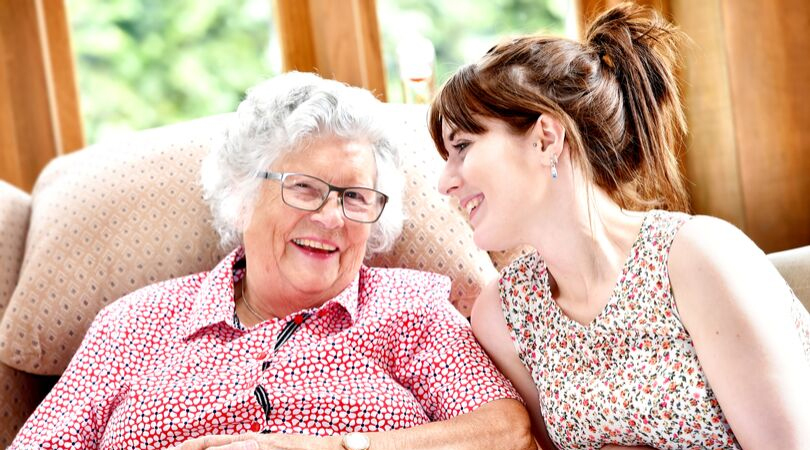The Art of Caring – Part 2: Arranging the Right Type of Home Care
7 October 2019
Written byMatt Barnes

National Office
Please enter the office location/term above to receive results for your closest office as well as information matches

Following on from our first blog article, Exploring Care Options, this article looks at the process of arranging the right type of home care. There are lots of home care services available, including social care through your local authority and private care through independent companies. Initially, the first step should be to approach social services at your local council and ask for a needs assessment, which is free of charge to all, irrespective of your income and savings. To arrange one, call your local council directly or apply online: https://www.gov.uk/apply-needs-assessment-social-services
Nb. Social Care is means tested and generally councils will agree to help with care costs if you have savings of less than £23,250 (correct as at 2019/20). Where an estate is worth significantly more than this, people often opt to go directly to a private home care provider to organise an assessment and the provision of care – see section below – ‘Where Should I Look for Help if I’m Arranging Home Care Myself?’
A social worker or occupational therapist from the council will speak with you and assess how you’re managing everyday tasks like washing, dressing and cooking. They might ask you to describe how well you do certain things like making a cup of tea and getting out of a chair. If it seems you may need some alterations in and around the house, such as grab rails in the bathroom, you might also be referred for a separate assessment of your home. The needs assessment can happen face-to-face or over the phone and usually last at least an hour.
Give as much detail as you can about all the everyday tasks you struggle with, even the little ones like turning taps on and off. Leaving out things might reduce the care recommended for you. After your assessment, if you are eligible for support your local council will provide a written care plan or will give you advice and information on your other options if you do not meet the criteria for help.
Most local councils charge for the services they provide in your home. Some place an upper weekly limit on the amount you have to pay. Before charging you for services, your local council must work out how much you can afford to pay and this amount should leave you with a reasonable level of income. Check your local council’s website for their charging information: https://www.gov.uk/find-local-council
If you’re assessed as needing community care services, you may be able to choose something called direct payments. These are regular payments paid by the council directly to you or a person you trust and allow you to buy and arrange your own care. Alongside direct payments, the Government has introduced personal budgets which aim to give people more choice and control over how they arrange and pay for their social care services. Find out more about personal budgets and direct payments: https://www.nhs.uk/conditions/social-care-and-support-guide/money-work-and-benefits/personal-budgets/
Most local councils don’t provide support if you just need a helping hand with your housework, gardening or shopping. Private home care services will assist in such matters but if cost is an issue you can contact a local voluntary organisation such as the Royal Voluntary Service, to see whether they may be able to provide services for you. It may still be a good idea to get an assessment by your local council to discuss your options, even if they are not able to help with these tasks.
You can get help with things such as cleaning, shopping and personal care through private agencies. These agencies must be registered with the Care Quality Commission (CQC). In addition:
However you intend to pay for your care and the type you get, it’s important to arrange that assessment of needs.
What it does is put in black and white your situation at a certain time. You can then be reassessed later if needs be, to see if anything has changed.
When arranging care through a private agency, their Registered Care Manager will also come and conduct a thorough care plan.
In addition to personal care and specialist services, such as Dementia and Alzheimers care, Radfield Home Care Wycombe, Beaconsfield & South Bucks offer domestic support, assist with trips out of the home and companionship. Please call 01494 614 516 if you wish to discuss yours or a close one’s needs.
At Radfield Home Care Wycombe, Beaconsfield & South Bucks, our priority is ensuring that care provided to our clients is fitting for their needs, personable, provided in a respectful and dignified manner and life enhancing.
“The care assessments we undertake with our clients are relaxed and informal conversations in their own homes but are very thorough to ensure all of their needs are met. I love meeting with our clients, with the knowledge that we are starting relationships that can really make a difference.” – Katy Cresswell, Registered Care Manager of Radfield Home Care Wycombe, Beaconsfield & South Bucks
This branch of Radfield Home Care covers the main towns and surrounding areas of South Bucks, including High Wycombe, Beaconsfield, Marlow, Gerrards Cross and Amersham.
Sources: NHS, YouGov.UK, Age UK
Get in touch with your local Radfield Home Care office today and find out more about the support we offer and the difference we can make.